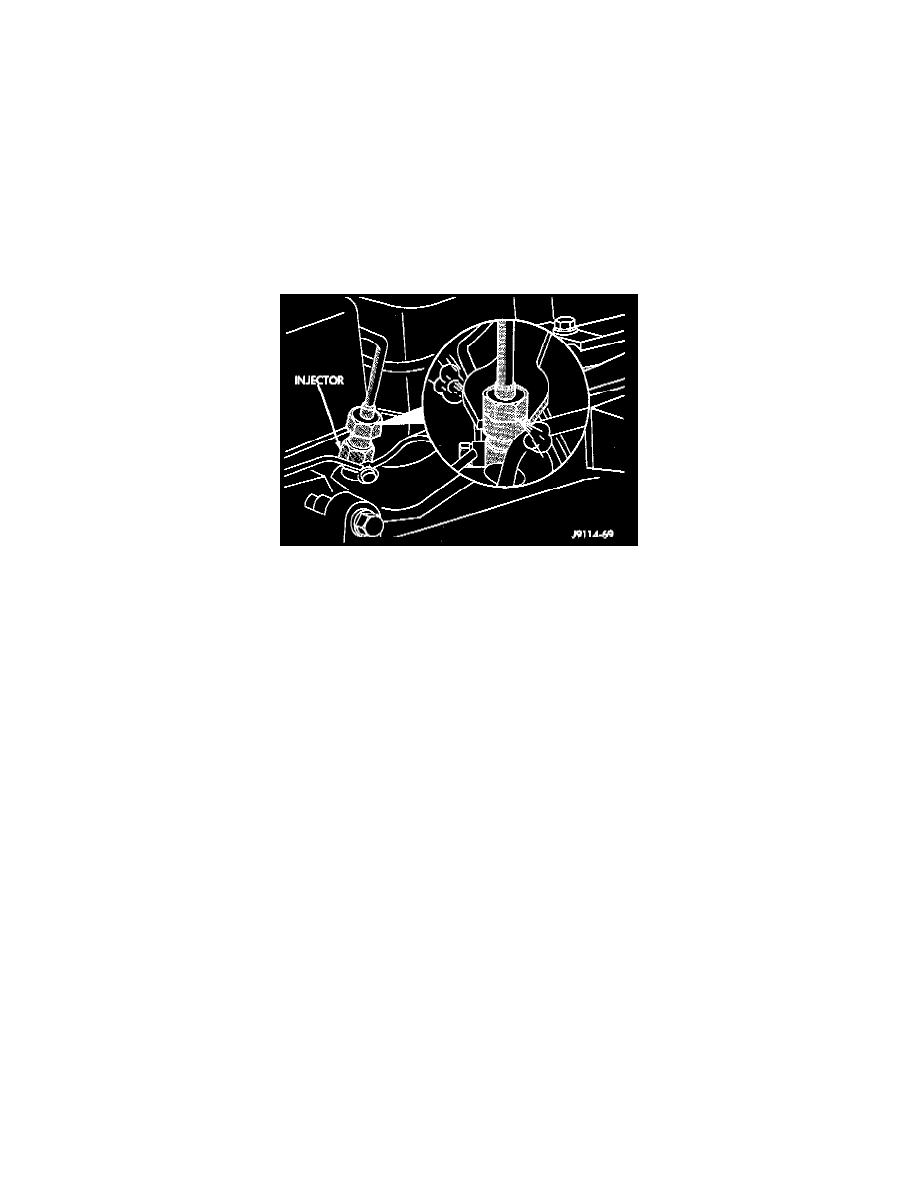2500 4x2 Pickup L6-359 5.9L DSL Turbo (1994)

Fuel Injector: Testing and Inspection
A leaking fuel injector can cause fuel knock, poor performance, black smoke, poor fuel economy and rough engine idle. If the fuel injector needle valve
does not operate properly, the engine may misfire and produce low power.
A leak in the injection pump-to-injector high-pressure fuel line can cause many of the same symptoms as a malfunctioning injector. Inspect for a leak in
the high-pressure lines before checking for a malfunctioning fuel injector.
WARNING: THE INJECTION PUMP SUPPLIES HIGH PRESSURE FUEL OF UP TO APPROXIMATELY 120,000 KPA (17,400 PSI) TO EACH
INDIVIDUAL INJECTOR THROUGH THE HIGH-PRESSURE LINES. FUEL UNDER THIS AMOUNT OF PRESSURE CAN PENETRATE THE
SKIN AND CAUSE PERSONAL INJURY. WEAR SAFETY GOGGLES AND ADEQUATE PROTECTIVE CLOTHING. AVOID CONTACT WITH
FUEL SPRAY WHEN BLEEDING HIGH-PRESSURE FUEL LINES.
WARNING: DO NOT BLEED AIR FROM THE FUEL SYSTEM OF A HOT ENGINE. DO NOT ALLOW FUEL TO SPRAY ONTO THE
EXHAUST MANIFOLD WHEN BLEEDING AIR FROM THE FUEL SYSTEM.
Inspecting Injector Operation
To determine which fuel injector is malfunctioning, run the engine and loosen the high-pressure fuel line nut at the injector. Listen for a change in engine
speed. After testing, tighten the line nut to 30 Nm (22 ft lb) torque. If engine speed drops, the injector was operating normally If engine speed remains
the same, the injector is malfunctioning. Test all injectors in the same manner one at a time.
Once an injector has been found to be malfunctioning, remove it from the engine and replace it.
